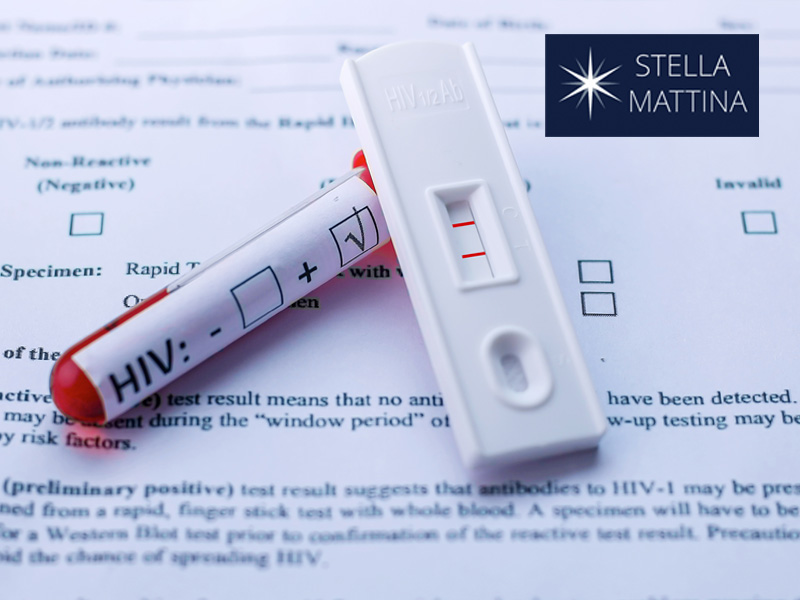
HIV Testing Day is more than just a health awareness campaign. It’s a life-saving reminder!
The reason behind having a special reminder day is that early and regular testing helps you to
- take control of your health,
- protect your partners, and
- reduce the spread of the virus in our communities.
Whether you’re testing for the first time or as part of your routine care – and if you already take precautions – you’d likely still prefer to understand more about the message “get tested” – and how to go about it.
So here’s the information you need.
What Is HIV Testing Day?
National HIV Testing Day is a day to encourage people of all ages, backgrounds, and risk levels to know their HIV status through regular testing.
Many people with HIV don’t know they have it. But without testing, they might unknowingly transmit the virus to others or miss out on life-changing treatment options.
The thing to remember is that HIV is no longer the life sentence it once was. Modern medicine has transformed it into a manageable condition, especially when caught early.
That’s an excellent reason to note the day in your diary and take action!
Why is HIV Testing Important?
First off, it empowers you to know your status and – if necessary – allows you to get timely care.
Why else is HIV testing vital?
>>Early detection saves lives: Starting antiretroviral therapy early can help you maintain a healthy immune system and prevent complications.
>>You protect others: Knowing whether you’ve contracted HIV helps you make informed decisions about relationships and sexual health.
>>It reduces stigma: When more people talk about testing, it becomes a normal part of wellness.
Who Should Go for HIV Testing, and How Often?
The CDC recommends that everyone over 15 get tested for HIV at least once in their lifetime.
People with higher risk, such as those with multiple sexual partners, men who have sex with men, or individuals who use injectable drugs, should get tested more frequently, usually every 3 to 6 months.
Pregnant women are also tested for HIV as part of standard prenatal care to help prevent mother-to-child transmission.
Where Do You Go to Get Tested for HIV?
You don’t have to go far or wait long to get tested. There are several convenient options:
- Many local clinics and community health centers offer free or low-cost, confidential testing.
- Primary care providers can offer you an HIV test as part of routine lab work.
- Some pharmacies and walk-in clinics offer rapid testing.
- FDA-approved, at-home rapid HIV test kits let you collect a sample in the privacy of your home and get the result in 20-40 minutes.
To find a testing site near you, simply search for “HIV test near me” or check local health department websites for free testing events.
What Happens During HIV Testing?
HIV tests are quick, simple, and minimally invasive. Depending on the setting, you might receive one of the following:
Blood tests from a vein or a finger prick – commonly used in medical offices and labs.
Oral fluid tests – using a swab to collect a sample from the inside of your cheek or gums.
Rapid tests – giving you results in under 30 minutes.
Understanding Your HIV Test Results
Waiting for HIV test results can be stressful, but getting clear answers is an essential step toward managing your health.
Negative result: You likely do not have HIV. But if you had a recent possible exposure, you may need to retest after the window period (typically 2 to 12 weeks, depending on the type of test).
Positive result: You’ll receive a follow-up test to confirm the result. If confirmed, you can begin treatment immediately. Early treatment leads to better health outcomes and greatly reduces the risk of transmitting HIV to others.
What Disease Can Cause a False-Positive HIV Test?
While HIV tests are very accurate, a small percentage of results can be falsely positive. If you’re wondering what disease can cause a false-positive HIV test, the answer is that some conditions produce antibodies that may interfere with the test:
- Autoimmune diseases
- Certain vaccinations
- Sexually transmitted infections
- Tuberculosis
- Malaria
- Certain cancers
- Liver disease
- Kidney disease
False positives are rare, luckily. They can be scary. But this is why all initial positive results are confirmed with a second, more specific test before a diagnosis is made.
Can HIV Hide From Tests for Years?
Modern HIV testing technology is highly sensitive and designed to detect the virus or your immune system’s response to it.
However, during the window period (the time between exposure and detectability), you might test negative even if you have the virus.
This window period usually lasts between 10 and 90 days, depending on the type of test used. After this time, the likelihood of detecting HIV with a test is extremely high.
For most people, therefore, HIV will not hide from detection for years unless they were never tested again after an early exposure during the window period. This reinforces the need for regular testing and a specific calendar day when we’re all reminded it’s HIV Testing Day!
What Are HIV Screening Test Results?
The HIV screening test results are the outcomes of the first-line tests used to detect HIV infection. These are typically either:
Antibody tests, which look for your immune system’s response to HIV.
Antigen/antibody combination tests, which detect parts of the virus and your body’s response.
HIV and Testing: Reducing the Stigma
Too often, possible stigma keeps you from accessing the care you might need. HIV testing should not be taboo. In fact, it should be as normal as getting your blood pressure checked.
Testing is not a reflection of your lifestyle, character, or morality! It’s a proactive choice to stay healthy and informed. And with today’s privacy standards and rapid testing technology, there’s no reason to avoid it.
Stella Mattina Believes HIV Testing Matters
At Stella Mattina, we are in favor of preventive action. Regular testing for HIV helps catch infections early, allowing us to offer you lifesaving treatment to protect your health and the health of your loved ones.
With same-day appointments and at least 10 locations to choose from, call us today and let’s get the test done!
Dr. Krum is currently in practice in Arlington, TX. He received his undergraduate degree at Texas A&M University, then attended UTMB Galveston for medical school, finishing in 1986, completing his residency there in 1990. Providing a full range of obstetrical and gynecological care, he specializes in the treatment of endometriosis and robotic surgery. He arranges his schedule so that same-day appointments are usually available.
